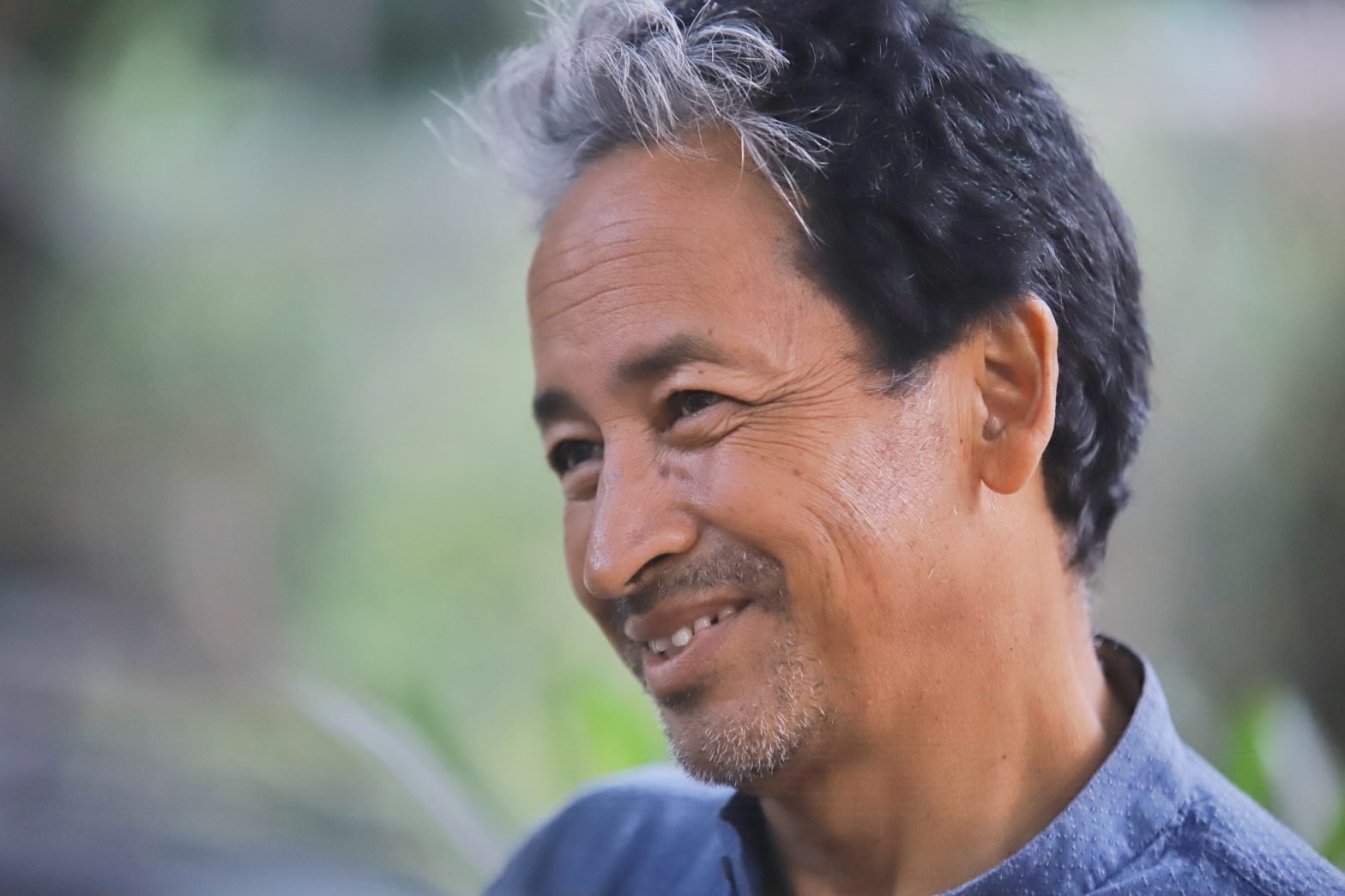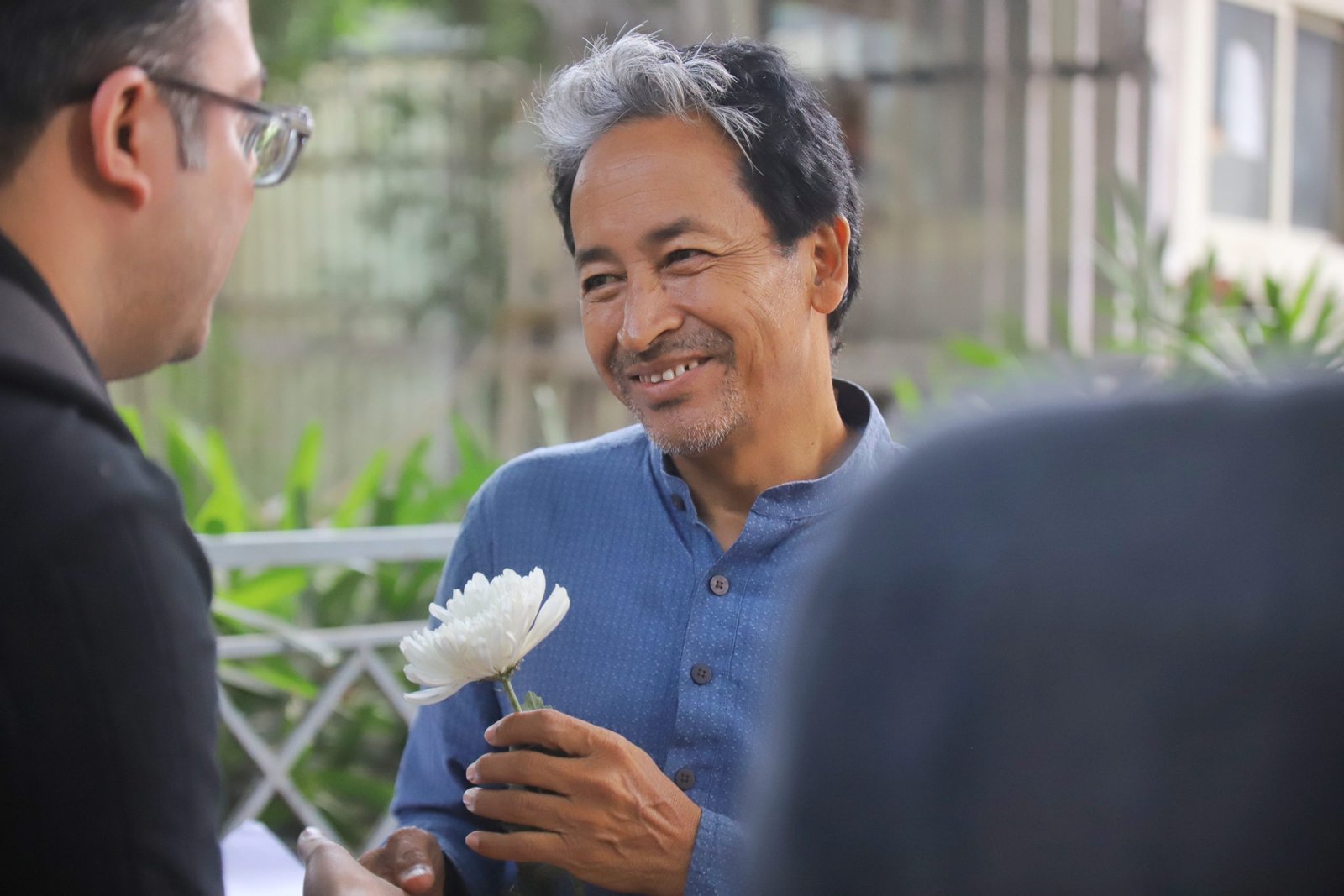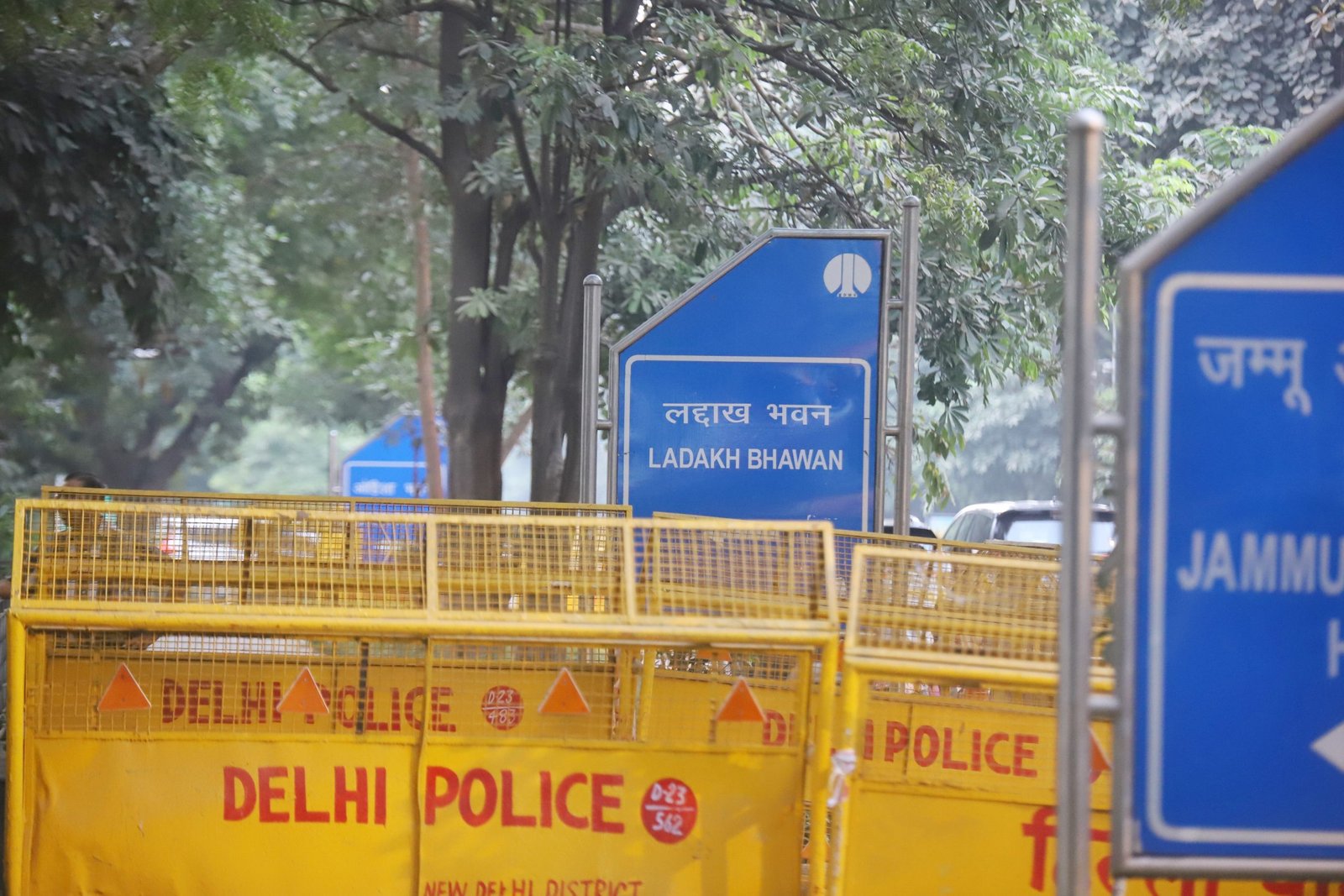NEW DELHI – At a time when there is de-escalation between China and India over the Ladakh border dispute following talks between Xi Jinping and PM Narendra Modi on the sidelines of BRICS, a mellowed celebrated protestor Sonam Wangchuk on Wednesday indicated he’s eagerly waiting for talks with Centre on December 3 in “good faith”.
Wangchuk’s three-week protest has focused on the vexed issues of China incursions, ecological threats and Ladakh economy as he led sit-ins on the Delhi border. During an exclusive conversation with The New Indian, Wangchuk said, “We hope that both sides engage in good faith and trust, leading to positive outcomes. That’s my belief.”
Wangchuk, known for his advocacy on environmental issues and sustainable development, has faced challenges in his activism. He refrained from commenting on his recent confinement in Ladakh House by Delhi Police and local authorities, maintaining a focus on the forthcoming dialogue.
As anticipation builds for the December talks, Wangchuk’s remarks reflect a commitment to constructive engagement, underscoring the need for collaboration between activists and the government to address pressing climate concerns.
ALSO READ: Supreme Court halts demolition drive pending further review – THE NEW INDIAN
Sonam Wangchuk, who had been on an indefinite hunger strike at Ladakh Bhawan in Delhi since October 6, ended his fast on Monday evening. He called off the protest after the Home Ministry assured that talks regarding Ladakh’s demands would be resumed in December.
Wangchuk, along with a group from Ladakh, had come to Delhi to press for the region’s inclusion under the Sixth Schedule of the Constitution. They were detained at the Singhu border by Delhi Police but were released later that night on October 2.
The march was organized by the Apex Body Leh, which has been leading the movement along with the Kargil Democratic Alliance (KDA) for four years. Their demands include statehood for Ladakh, inclusion under the Sixth Schedule, quicker recruitment processes, the establishment of a public service commission for the region, and separate Lok Sabha seats for Leh and Kargil districts.
The decision to resume talks comes after significant public support for Wangchuk’s fast, which highlighted the ongoing struggle for Ladakh’s political rights and environmental protection. The MHA’s commitment to dialogue is seen as a positive step towards addressing the concerns of Ladakh’s people and ensuring their active participation in governance.












